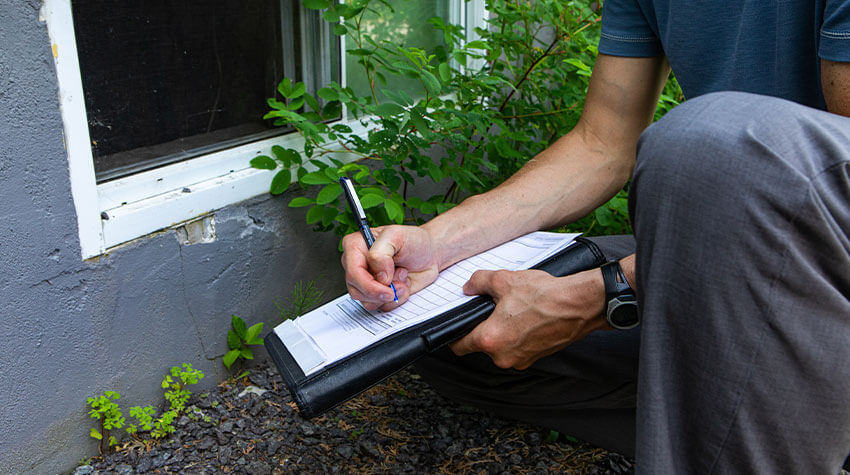What is Involved in a Home Inspection?
When you pay a qualified home inspection professional to inspect your real estate purchase, you should expect an objective report on the current condition of the property – top to bottom, inside and out. You should also expect to learn about needed repairs and replacements that may be needed in the near future.
Typically, an American home inspection involves the review of more than 100 parts and systems. Exterior inspections include checking siding, trim, gutters, chimney, decks, garage, doors, and windows. Property foundation and framing systems are examined for cracks, sagging, and other structural defects. Interior inspections include close examination of ceilings, floors, and walls of every room. The attic, insulation, basement and crawlspace will likely receive special attention. To help the inspector do his or her job, the home owner should ensure easy access to both attic and below-ground areas.
The entire electrical, plumbing, heating and air-conditioning systems are inspected for correct operation and excessive wear. Swimming pools are examined for cracks and leaks.
The inspector also looks for evidence of and damage by pests, termites, or the presence of toxic materials.
Once the inspection is complete, the Home Inspector will provide a report to all parties, usually on the spot. The report will cover the condition of all areas inspected, noting any major or minor defects, potential future issues and suggested repairs.
How Much Does a Home Inspection Cost?
Home inspection costs will vary depending upon many factors, including the home's location, the Home Inspector's capabilities, the size of the home, and more. On average, you can expect to spend $300-$350 for a home inspection on a 2,500 square foot house.
Because of the variance in home inspection costs, it is important to get an estimate from your professional home inspector before the project begins and agree on a price. Some home inspectors charge by the size of the property (number of square feet). Others charge by the hour. Most charge a flat fee plus additional fees for radon, mold, or other tests.
Be sure to understand what you're getting from your home inspection. Generally, it's best to be as thorough as possible, but as with any aspect of home buying or selling, you should understand what you get from your investment. Don't over pay a home inspector, or purchase an unneeded service.
The Home Inspection Report
Home inspection reports are designed to comment on the condition of the property you have under consideration. Some reports are completed onsite using a checklist with handwritten notes. Others are computer generated. The most up-to-date inspectors will have a laptop, digital camera and portable printer onsite, and can produce full-color printed reports almost immediately after inspection.
Regardless of format, the home inspection reports should include detailed descriptions and photographs of defects and recommendations for repairs. Be sure and ask your home inspector about anything you do not fully understand.
While the results of a home inspection can be a valuable tool for buyer-seller negotiations, keep in mind that minor repairs or cosmetic flaws may not be cause for the seller to reduce the price. On the other hand, if an inspection is part of your sales contract and serious defects are discovered, the report provides a tool for negotiating concessions or an escape clause from a real estate deal.
Discuss the results with your real estate agent to determine whether or not the inspection's findings should affect your property purchase.

